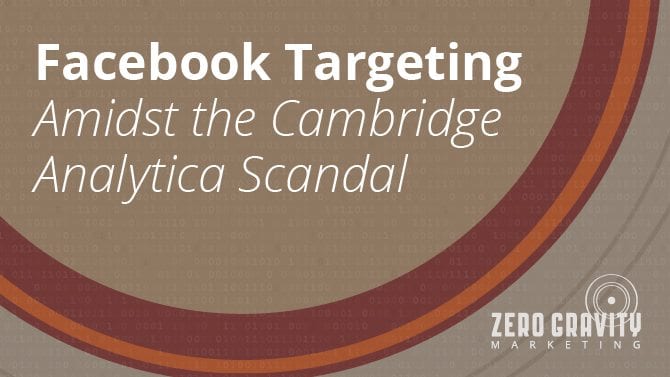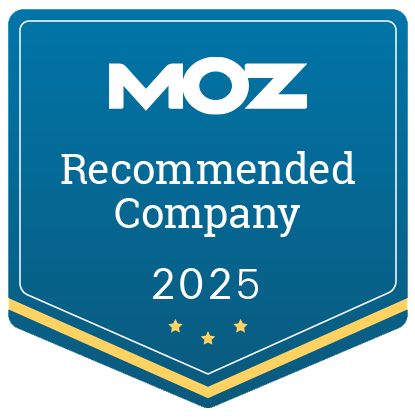In early 2014, a seemingly innocent quiz app on Facebook collected information on nearly a billion Facebook users. The information gathered was used to target users with personalized political advertisements.
Cambridge Analytica is a political data firm that specializes in creating personality profiles on voters. They collect information about people, analyze what influences their political decisions, and reports this information to the paying party. And in this case, the paying party was Trump.
The Cambridge Analytica scandal is big news again now that more accurate victim counts have been released. And this time around, Facebook has no choice but to make some big changes. Here is everything you need to know about the Facebook data scandal, including what Facebook advertising options you still have available.
Facebook Data Scandal – Who Was Effected?
Back in 2014, a quiz called thisisyourdigitallife encouraged users to fill out a questionnaire to find out interesting things about themselves. When this personal data was entered, it was then collected and passed onto Cambridge Analytica against Facebook’s policies. This data was then used within Facebook’s email-address-and-phone-number-search feature to collect information from millions and millions of people. Four years ago, it was known that 40 million people had their data stolen, yet Facebook did nothing to intervene.
Enter today. It seems like the initial estimates of 40 million people didn’t even touch the surface. New reports put out by multiple sources, including the Washington Post, say that the figure is closer to 87 million people. But even that doesn’t really cover it. On April 4, 2018, Facebook’s CEO Mark Zuckerberg said that in reality, most of the platform’s 2 billion users who have specific search settings turned on could have been affected.
Essentially, anyone who had the option turned on for people to find them via email address or phone number may have had their data compromised. To find out if your data was shared, log into Facebook then click here.
Why It Matters – Political Marketing
Of course, there is no saying, without a doubt, that if Cambridge Analytica didn’t steal this data and hand feed the Trump campaign what they needed to know to effectively target millions of voters that the election would have ended up differently. It is only speculation. But it does make you say “Hmmmmmmm.” No matter what your political stance or your feelings about the current POTUS, everyone can agree that the country should have the right to a fair, unbiased vote. And it seems like Cambridge Analytica, with the unknown help of Facebook’s privacy settings, could have altered this.
How Facebook Is Proceeding After the Data Scandal
Clearly, in the wake of this revelation, Facebook users are a little nervous about staying active on the platform. And if the users leave, there may be a decreased ROI for advertisers (a.k.a. Facebook’s revenue source), and the platform will become a part of history. So it’s no surprise that Facebook is making some big changes.
What Data am I Sharing?
First, Facebook is updating the layout of the platform to make it simpler to see what personal information you are sharing with each of the apps to which you are connected. Facebook also allows you to download all of the data you are sharing so you know exactly what it is. And Facebook has, for the time being, halted any new apps from getting approved for the site, and they are blocking any new bots from being added to Messenger.
Removing Targeting Options
As far as advertising goes, the biggest change is that Facebook has removed all third-party ad targeting options, otherwise known as Partner Categories. This was a very valuable tool for advertisers because it allowed them gather data from sources like Experian, Acxiom, WPP, and more, to target people based on their off-site activity. They could be shown who was in the market for a car, which users were more likely to make a purchase, people with particular job titles, etc.
You Have to Opt-In
Though this is not fully implemented yet, it is likely that advertisers will have to confirm they have received permission from all users in order to upload their data, before being allowed to run an ad. Additionally, Facebook will no longer allow custom audience data to be shared amongst business accounts.
Facebook Targeting Options That Are Still Available
Even though it stings to lose Partner Categories, there are still plenty of ways to make the most of your Facebook advertising dollars. Some of our favorite still-available targeting options include:
- Interest Targeting – Target users based on what they interact with on the platform to find people who are interested in your industry.
- Geo–Targeting – Target people based on where they live, where they are traveling to, or where they recently visited.
- Website/Email Custom Audience – This option lets you retarget your website visitors or email-list subscribers on Facebook. You can also create a Look-A-Like audience of people who behave in a similar way as your website users.
- Engagement Custom Audience – Target people who have already interacted with your brand on Facebook to give them the extra nudge they need to commit.
While the future of Mark Zuckerberg is yet to be determined (he stands before the House Energy and Commerce Committee on the 11th of April), it’s clear that Facebook advertising is not dead. We may have lost some good features, but there are still plenty of amazing ones to go around. If you would like to learn more about how you can make the most of Facebook’s detailed targeting options, contact us now.









